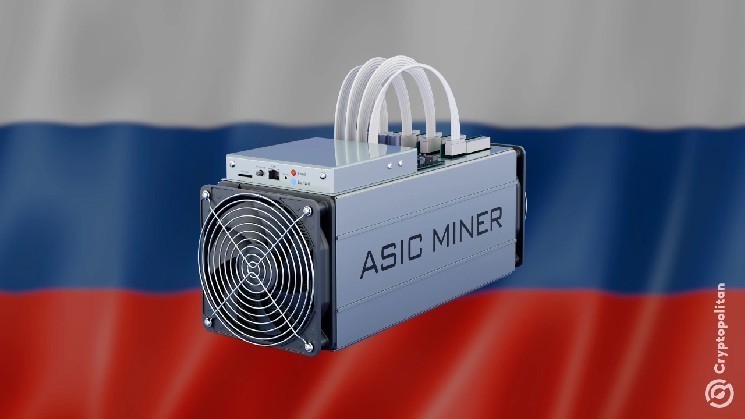Russian authorities have identified more than 8,000 miners minting cryptocurrencies outside the law in the Siberian crypto mining hotspot of Irkutsk.
The region banned the activity in parts of its territory to deal with growing energy deficits and grid breakdowns blamed on the boom of both legal and illegal mining.
Russia counts thousands of underground crypto farms in Irkutsk
Officials in Russia’s Irkutsk Oblast have pinpointed several thousand locations with suspected illegal crypto mining facilities, but the actual figure likely exceeds the current estimate, the local power utility, Irkutskenergosbyt, told RIA Novosti and detailed:
“There are more than 8,000 illegal mining points in the region. The largest number of them have been registered in Irkutsk, about 1,500, and Irkutsky District, 1,700.
The cities of Angarsk and Shelekhov are in the “red zone” as well, the distribution company added. Also quoted by the business news agency Prime, it emphasized that the true number of these so-called “gray” miners is much higher.
Growing demand for “noise boxes,” or casings designed to reduce noise emitted by mining hardware, is another indication of the scale of these “shadow operations,” Irkutskenergosbyt noted.
Home miners use them when installing mining rigs in residential buildings, basements and garages to avoid attracting the attention of neighbors and their complaints.
Ads selling such improvised gear can be seen all over Russian social media networks and online marketplaces, the utility firm pointed out.
Many of these makeshift structures, assembled from plywood and mineral wool, fail to provide adequate sound insulation and also increase the risk of fire.
Irkutsk at the heart of Russia’s crackdown on illegal mining
Russia recognized the mining of cryptocurrencies as a legal business activity in 2024. Since November, companies and individual entrepreneurs have been free to mint as long as they register with the Federal Tax Service (FNS).
Private individuals who use less than 6,000 kWh of electricity monthly are not required to register. These are labeled “gray” miners, as they largely remain under the radar and are often responsible for raising electricity consumption in residential areas.
Another group, “black” miners, are those who mine on stolen power by illegally connecting to distribution networks. Russia’s grid operator Rosseti has been hunting them down by both electricity usage and internet traffic with the help of telecom firms.
Moscow initially welcomed the industry’s expansion with the idea that Russia’s competitive advantages, in terms of cheap and abundant energy resources, will inevitably result not only in business revenues but budget receipts as well.
However, the concentration of mining enterprises from all categories also led to electricity shortages in a number of areas, prompting the federal government in Moscow to support temporary and, in some cases, permanent restrictions on mining.
Russian President Vladimir Putin, himself, justified the measures, highlighting the need for a balanced approach to exploiting Russia’s riches during a forum discussing development initiatives last month.
About a dozen Russian regions in all corners of the vast country, from the Far East to the North Caucasus and the annexed Ukrainian territories, have already banned the activity until 2031.
Measures to curb mining were also introduced in the southern parts of Irkutsk Oblast, dubbed the “mining capital” of Russia. The originally seasonal ban there, during the winter, was eventually upgraded to a year-round prohibition.
Russian lawmakers are now reviewing legislation that seeks to prevent mining in data centers. The sponsors say this will save computing power that can be utilized in other fields, including the development of artificial intelligence applications.
Meanwhile, the operators of such infrastructure were recently mandated to report any mining activities in their facilities to the FNS and other relevant institutions.
Russia is also preparing to toughen penalties for violating mining bans and illegal coin minting. Among the proposed measures is to allow authorities to remotely disconnect crypto farms from the grid during peak hours of consumption.

